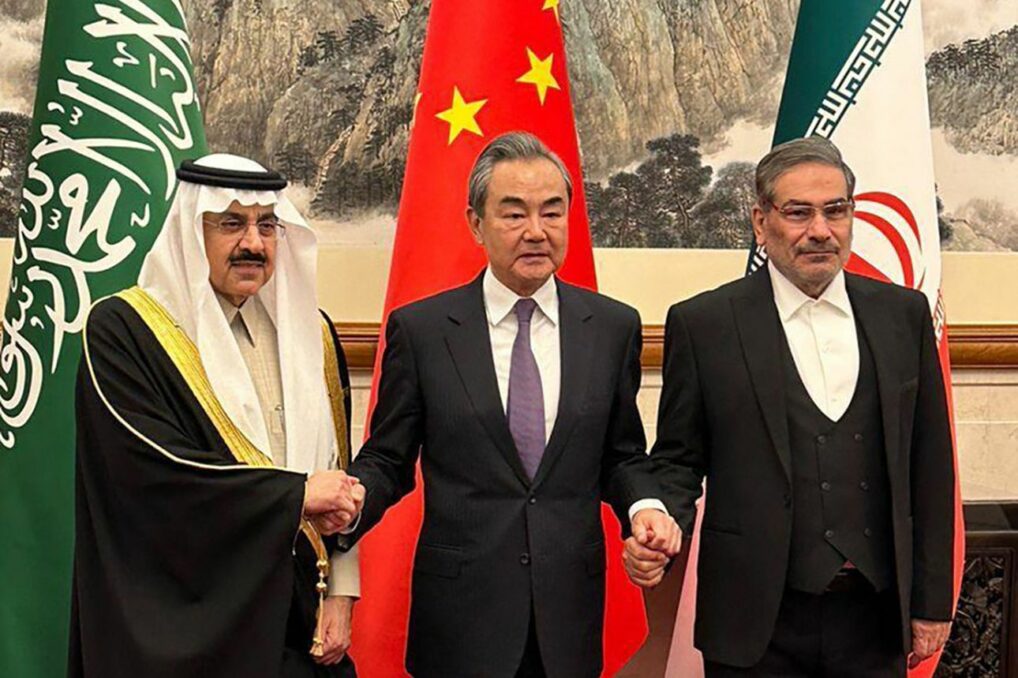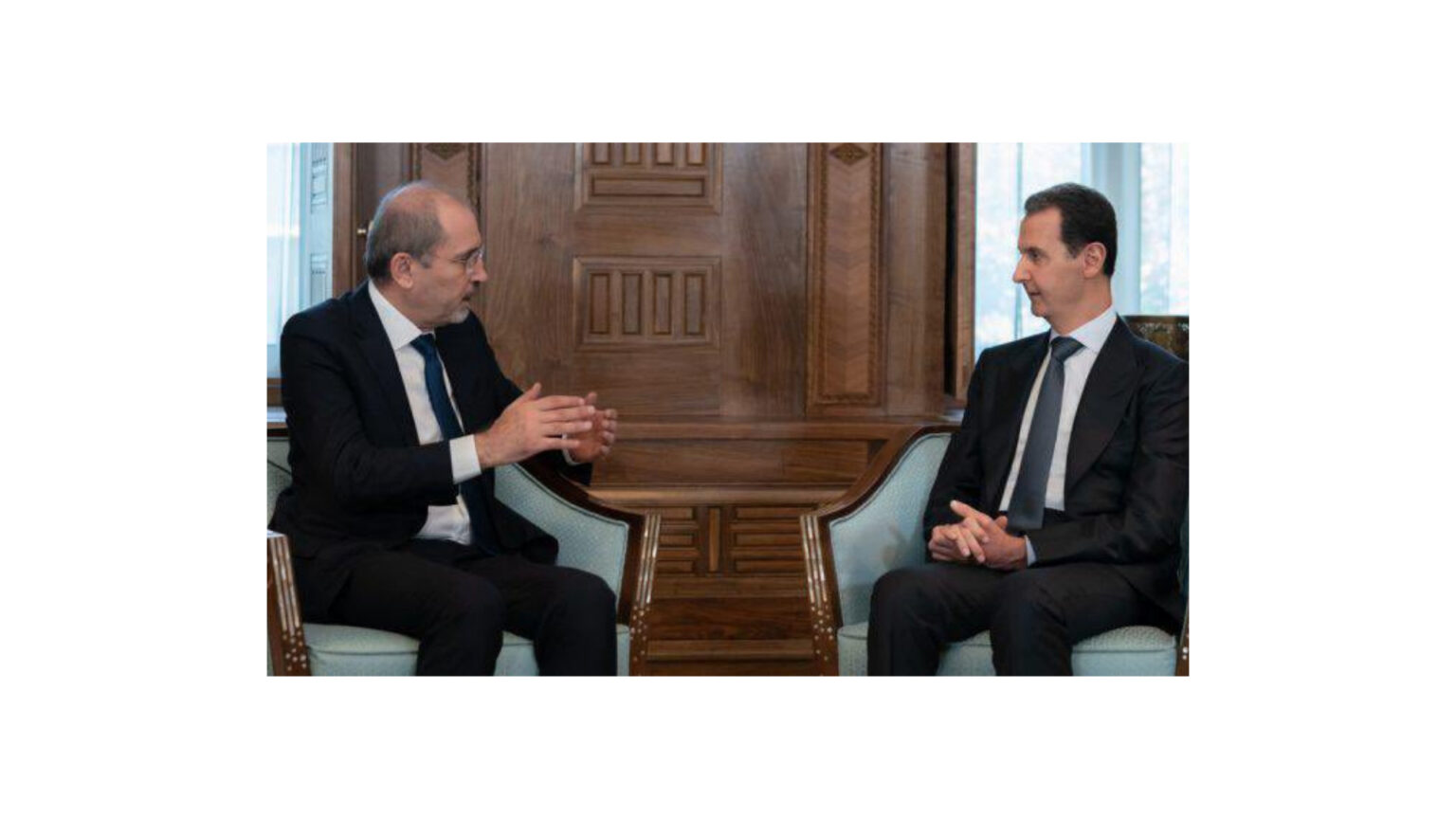The regional talks hosted by Jordan aimed at ending Syria’s political isolation and reintegrating Damascus into the Arab fold have highlighted the crucial role of the Jordan-Syrian relationship. Over the years, Jordan has played a significant role in facilitating dialogue and engagement with Syria, even during the country’s period of political isolation. As Jordan continues to navigate the complex regional dynamics, it has emerged as a key mediator, hosting diplomatic discussions and fostering regional cooperation.
during the joint press conference with his counterpart, Minister of Foreign Affairs and Expatriates of the Syrian Arab Republic, Dr. Faisal Al-Miqdad, which was held at the headquarters of the Syrian Ministry of Foreign Affairs and Expatriates in #دمشق today. Video Source – Ministry of Foreign Affairs, Jordan.
Focus on Political Solution and Humanitarian Needs
During the recent talks, Jordan’s Foreign Minister Ayman Safadi emphasized the importance of finding a political solution to the Syrian conflict and addressing the pressing humanitarian needs in the country. The discussions centered around the safe and voluntary return of refugees, international investment in Syria’s infrastructure, and coordination with the United Nations to ensure the well-being of the Syrian people. Jordan’s commitment to humanitarian efforts and its diplomatic role in the region have provided a conducive environment for productive discussions.
Saudi Arabia and Iran’s Role in Rebuilding Relations

The recent restoration of diplomatic relations between Saudi Arabia and Iran, brokered by China, has set the stage for renewed regional engagement and has significant implications for Syria. Saudi Arabia, once a supporter of Syrian rebel groups, has taken the lead in fostering rapprochement with Damascus. This newfound diplomatic engagement, facilitated by Jordan’s efforts, signifies a shift in Saudi-Syrian relations. Saudi Arabia’s willingness to embrace Syria as a key player in the Arab world reflects a desire to cool regional tensions and pursue a more inclusive approach.
Syrian Reintegration and the Changing Geopolitical Landscape
As Saudi Arabia recalibrates its regional strategy, its warming relationship with Syria plays a pivotal role in Syria’s reintegration into the Arab fold. Syria’s independent foreign policy, which often diverges from Iran’s agenda, holds particular appeal for Saudi Arabia. While maintaining diplomatic ties with Iran, Syria has pursued its own interests in Lebanon, aligning with groups that support the Syrian regime rather than advancing Iran’s main objectives.
The emergence of China as a prominent regional player further creates opportunities for Saudi Arabia to engage with Syria. In an interview to the BBC in 2016, the Jordanian King appealed to the US & Russia to converge on the issue of regional stability and establish multilateral dialogues to establish communication by finding “common grounds.” Seven years later, his appeal still holds substance.
China’s Economic Diplomacy and Regional Dynamics
China’s increasing economic diplomacy in the Middle East presents a favorable environment for Saudi Arabia’s engagement with Syria. China’s strategic investment approach, including its interest in Lebanese ports, aligns with its Belt and Road Initiative and its aim to promote regional stability. China’s active involvement in Syrian conflict resolutions at the United Nations Security Council, alongside its recent facilitation of the Saudi-Iran diplomatic deal, positions it as a key player in the region. Saudi Arabia can leverage China’s economic diplomacy to its advantage in shaping the future of Syria and the wider Middle East.
Regional Efforts Towards Conflict Resolution
Amid the absence of a coherent Syrian strategy from the United States, regional powers are taking steps towards conflict resolution.The ‘Pivot to Asia’ has been perceived as yet another evidence of US absence in the region. As Western powers still insist on the implementation of the UNSC resolution passed unanimously, the engagement of Saudi Arabia, Iran, and other Arab countries in discussions with Syria highlights a collective effort to find a political solution. Jordan’s role as a mediator and host of the recent talks underscores its commitment to fostering regional cooperation.
The involvement of various stakeholders, including China, adds new dimensions to the complex geopolitical landscape of the Middle East. The regional talks hosted by Jordan have shed light on the significant role played by the Jordan-Syrian relationship in ending Syria’s political isolation. The restoration of diplomatic ties between Saudi Arabia and Iran, facilitated by China, has created opportunities for dialogue and reintegration.
Jordan’s diplomatic efforts, coupled with the changing regional dynamics and China’s economic diplomacy, present a promising path towards resolving the Syrian conflict and shaping the future of the Middle East. As discussions continue and regional players reassess their strategies, Syria’s return to the Arab fold and the pursuit of political stability remain key priorities for the region.













